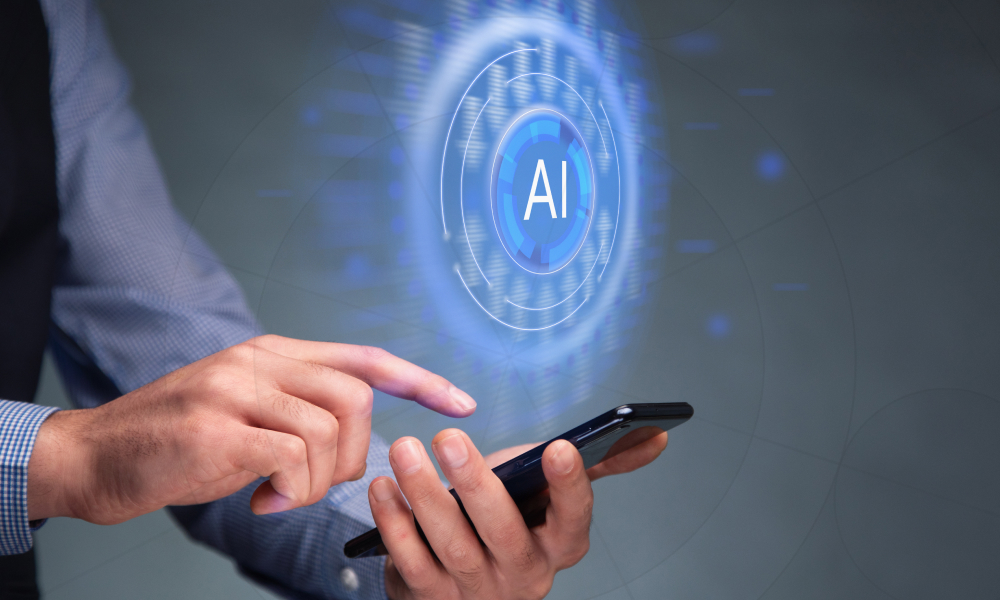Introduction
- Brief overview of mobile technology evolution
- Introduction to AI and its importance in modern tech
- Purpose of the article: Exploring AI’s impact on mobile technology
1. Historical Context of AI in Mobile Technology
- Early integration of AI in mobile devices
- Milestones in AI-driven mobile technology advancements
2. AI Enhancing Mobile User Experience
- AI-powered personal assistants (e.g., Siri, Google Assistant)
- Adaptive user interfaces and personalized experiences
- Smart recommendations and predictive text
3. AI in Mobile Applications
- AI in social media apps (e.g., content recommendation, spam filtering)
- AI in e-commerce apps (e.g., personalized shopping experiences)
- AI in gaming (e.g., improved NPC behavior, procedural content generation)
4. AI and Mobile Security
- AI-driven facial recognition and biometric authentication
- AI in mobile cybersecurity (e.g., threat detection, fraud prevention)
- Privacy concerns and ethical considerations
5. AI in Mobile Health and Fitness
- AI-powered health monitoring apps
- AI in diagnostic tools and telemedicine
- Case studies of AI improving health outcomes via mobile devices
6. AI Enhancing Mobile Photography and Videography
- AI-powered camera features (e.g., scene detection, photo enhancement)
- Real-time video editing and effects
- Impact on content creation and social media
7. AI and Mobile Connectivity
- Role of AI in optimizing network performance (e.g., 5G)
- AI in mobile data management and efficiency
- Future prospects of AI in enhancing connectivity
8. AI in Mobile Augmented Reality (AR) and Virtual Reality (VR)
- Enhancing AR experiences with AI (e.g., object recognition, spatial awareness)
- AI in mobile VR applications
- Future trends in AI-driven AR/VR on mobile devices
9. AI and Mobile Gaming
- AI-driven game design and development
- Enhancing player experiences with AI (e.g., adaptive difficulty, personalized gameplay)
- Future of AI in mobile gaming
10. The Future of AI in Mobile Technology
- Emerging trends and potential breakthroughs
- AI and the future of mobile computing
- Speculative future applications and technologies
Conclusion
- Recap of AI’s transformative role in mobile technology
- Final thoughts on the future trajectory of AI in mobile devices
- Encouragement for readers to stay updated on emerging AI trends in mobile tech
Sample Section Development: AI Enhancing Mobile User Experience
Introduction The integration of AI in mobile technology has significantly enhanced the user experience, making interactions more intuitive, personalized, and efficient. AI-driven innovations in mobile interfaces, personal assistants, and smart recommendations have revolutionized the way users engage with their devices.
AI-powered Personal Assistants Personal assistants like Siri, Google Assistant, and Alexa are among the most recognizable applications of AI in mobile technology. These assistants utilize natural language processing (NLP) and machine learning algorithms to understand and respond to user queries, perform tasks, and provide information. The continuous improvement in their ability to understand context and nuances in human speech has made them indispensable tools for many users.
- Voice Recognition: Advanced voice recognition technology allows personal assistants to accurately transcribe and respond to spoken commands, even in noisy environments.
- Contextual Understanding: AI-powered assistants can understand the context of queries, allowing for more natural and conversational interactions.
- Task Automation: Users can automate routine tasks such as setting reminders, sending messages, and controlling smart home devices, making daily life more convenient.
Adaptive User Interfaces and Personalized Experiences AI algorithms analyze user behavior and preferences to tailor the mobile experience to individual users. This adaptability enhances usability and ensures that the interface evolves based on the user’s habits and needs.
- Customizable Home Screens: AI can suggest app shortcuts, widgets, and layouts based on usage patterns, creating a personalized home screen that anticipates the user’s needs.
- Smart Notifications: AI-driven notification systems prioritize and manage alerts based on the user’s interaction history, ensuring that important notifications are highlighted while less critical ones are minimized.
- Dynamic Content Delivery: Content platforms use AI to recommend articles, videos, and music tailored to the user’s interests, enhancing engagement and satisfaction.
Smart Recommendations and Predictive Text AI’s ability to predict user behavior extends to recommendations and predictive text, making interactions more efficient and enjoyable.

- Content Recommendations: Streaming services like Netflix and Spotify use AI to recommend movies, shows, and music based on the user’s past consumption, significantly improving content discovery.
- Predictive Text and Autocorrect: AI-powered keyboards predict the user’s next word or phrase, improving typing speed and accuracy. Autocorrect features use machine learning to better understand the user’s typing habits and reduce errors.
- Smart Replies: Messaging apps incorporate AI to suggest quick replies based on the context of the conversation, streamlining communication and saving time.
Conclusion AI’s role in enhancing the mobile user experience is profound, driving innovations that make interactions more intuitive, personalized, and efficient. From personal assistants and adaptive interfaces to smart recommendations and predictive text, AI continues to transform the way users engage with their mobile devices, setting the stage for even more advanced and user-centric developments in the future.
